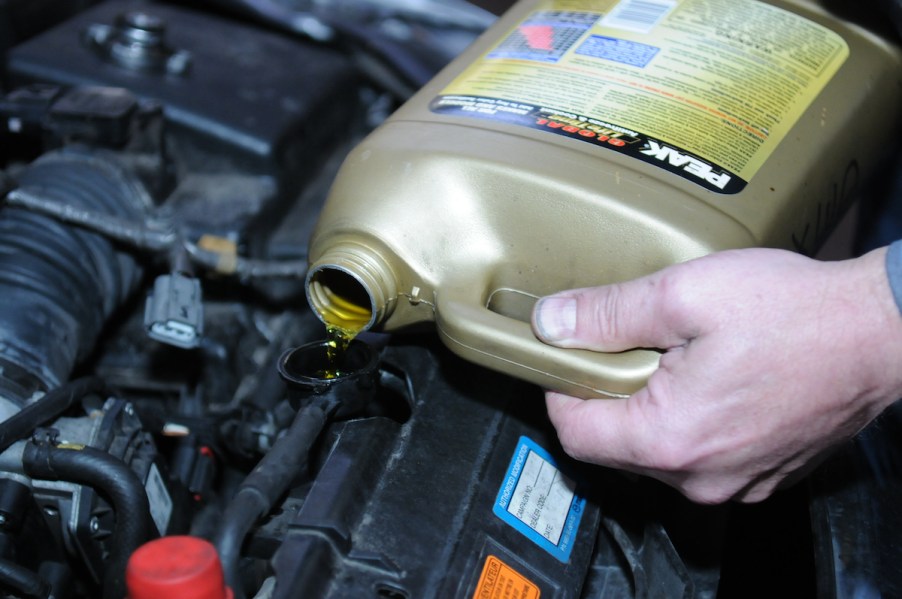
6 Reasons You Could Have an Antifreeze Leak
Finding a puddle underneath your car is a sure sign of a fluid leak. Identifying the fluid can help you find a solution to the problem. An antifreeze leak has a distinct color. Though the issue isn’t catastrophic, proper vehicle maintenance will prevent costly repairs. Fixing the leak might be as simple as tightening a loose hose clamp. However, more often than not, a significant antifreeze leak requires a professional auto mechanic’s expertise.
Diagnosing the problem is the first step toward correcting it. Below are six signs your vehicle might have an antifreeze leak.
What causes an antifreeze leak?

Your vehicle might start leaking fluids for several reasons. According to Access Insurance, the most common factors causing an antifreeze leak are the following:
- Blown head gasket
- Corrosion of radiator tubes
- A hole in the radiator
- Damage caused by road debris
- Wear-and-tear on the sealing gasket
- A worn-out hose that’s hard and brittle
The first sign of an antifreeze leak is a sticky lime-green, pink, orange, or blue-green substance accumulating in a small puddle underneath your vehicle. Manufacturers dye coolants various colors to differentiate them from other fluids. For instance, transmission fluid is typically dark red, while oil is gold or black.
You might also notice a sweet smell when you turn off your vehicle’s engine. Some drivers report the odor resembles butterscotch, maple syrup, or cinnamon. Though the scent might be pleasant, it’s a clear indicator of an antifreeze leak. A small leak can worsen gradually or quickly, leading to costly repairs. If you suspect an antifreeze leak, get your car checked as soon as possible.
What can happen if you don’t fix an antifreeze leak?
If left untreated, an antifreeze leak can lead to catastrophic complications, such as engine overheating or failure. Repair the leak as soon as possible. An issue with the coolant system will not fix itself and can deteriorate quickly.
When temperatures drop below freezing, any water sitting in the engine without antifreeze can turn to ice and expand. That expansion can split cooling system hoses, burst the radiator, and crack the cylinder head and engine block.
Fixing an antifreeze leak soon after you notice it can help you save money on costly repairs and protect your vehicle’s engine.
Why coolant is essential to the proper operation of your vehicle
Antifreeze keeps your engine running properly. Flush the coolant system every 30,000 miles to protect your vehicle’s health.
Antifreeze lowers the freezing point of water and protects the engine’s cooling system in extreme winter temperatures. The essential fluid helps the engine maintain a steady, even operating temperature despite colder exterior temperatures. Though antifreeze must be diluted with water before use, engine coolant is ready to use and performs the same function.
For safe operation, vehicles require antifreeze year-round to protect the engine from corrosion. The fluid assists with proper heat transfer and prevents rust buildup. Also, during the summertime, antifreeze can prevent engine overheating, as it raises the boiling point of water, providing essential protection for the coolant system.


